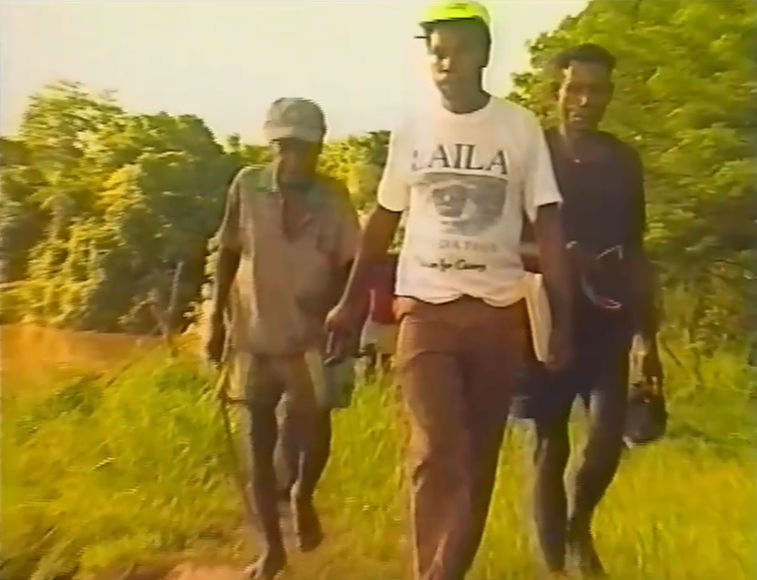The Laila Foundation was born out of a chance encounter and a shared purpose. In 1994, Dr. Nitin Verma, AM, then Head of the National Eye Service in Papua New Guinea, met the late Mohammad Sultan OBE in Port Moresby. Both men were new to the country — one a medical specialist, the other a businessman — but they were united by a desire to make a lasting difference. Dr. Verma had been deeply moved by the scale of preventable blindness he witnessed across PNG, where thousands were losing vision due to conditions that could be treated or cured. At the same time, Mr. Sultan was grieving the loss of his sister, Laila, who had succumbed to brain cancer. He wanted to create something meaningful in her memory.
Out of that conversation, and that shared conviction, the Laila Foundation was formed. Its mission was clear from the start: to support efforts in addressing the overwhelming burden of visual impairment in Papua New Guinea, particularly among those who could not afford care or reach the country’s limited health services. In its early years, the Foundation worked alongside the Department of Health and major partners like Chevron, BHP, Shell, and Mobil to deliver some of the most ambitious outreach patrols the country had ever seen. These weren’t just surgical missions; they were full-scale health campaigns. Eye care was often accompanied by pediatric and dental services, and even immunization efforts. One of the Foundation’s most pioneering efforts was a mobile surgical unit mounted on the Ramu Ranger, a barge that brought sight-restoring surgeries to riverine communities deep in PNG’s interior — places where no operating theatre had ever reached.
While the core focus remained eye care, the Foundation’s impact extended well beyond. One of its most meaningful programs was the Artificial Limbs Initiative, which brought a team of technicians from Jaipur Foot to conduct clinics in Wewak, Mount Hagen, and Port Moresby. More than 200 patients received custom prosthetics made from locally sourced materials, and local technicians were trained to ensure the program’s sustainability. The Foundation also offered scholarships to medical students at PMGH, supported athletes preparing for the South Pacific Games, and provided equipment to the national cricket team, reflecting its broader vision to uplift lives through health, education, and opportunity.
The momentum slowed slightly in 1997 when Dr. Verma relocated to Australia, though he remained involved through regular visits. One of the Foundation’s most impactful responses came in 1999, after a devastating tsunami struck Aitape. The Laila Foundation sent in medical teams to assist in emergency relief, distributing food, blankets, and supplies. Months later, the team returned to conduct ENT and eye surgeries for the displaced communities, continuing its work in the face of tragedy.
In the decades since its founding, the Laila Foundation has remained a quiet yet powerful force for good. Built on a promise to bring sight and dignity to the underserved, it has continued to grow under the leadership of Dr. Amyna Sultan, OBE, wife of the late Mohammad Sultan. Dr. Amyna has spearheaded outreach clinics, sight-restoring surgeries for low-income patients, and training programs for young ophthalmologists. Her work includes lecturing at the University of Papua New Guinea and serving as an external examiner, shaping the next generation of eye care providers.
Much of this work has been made possible through the support of Pacific International Hospital (PIH), founded by Mohammad Sultan. PIH has long served as a critical implementation partner for the Foundation — providing medical personnel, surgical equipment, and institutional backing to help scale outreach programs nationwide.
In recent years, the Foundation has deepened its efforts in some of PNG’s most underserved provinces. Since 2018, it has returned to Manus eight times in partnership with the Manus Provincial Health Authority and PIH, restoring sight to over 200 patients. In Hela Province, the Foundation collaborated with the Santos Foundation to carry out multiple high-volume cataract surgery camps — one of which gave back vision to more than 300 people who had lived in blindness for over five years. Additional missions in Kimbe and Lae have further extended its reach, always with the same guiding principle: to serve with dignity, compassion, and excellence.
Today, the Laila Foundation continues to grow as a family-run organization deeply rooted in service. In 2026, it plans to conduct at least ten outreach missions and perform over 2000 cataract surgeries across PNG. What began as one man’s tribute to his sister has become a national effort to reduce avoidable blindness and improve lives.
The Foundation’s logo still features Laila’s eye — scanned decades ago by her best friend, capturing an outline that would become our founding emblem. It is not just an image. It is a promise to keep Laila’s vision alive, in every sense of the word.
Our Story
What began as a family’s effort to honor a loved one has grown into a quiet, steady mission to bring sight and care to communities across Papua New Guinea.












